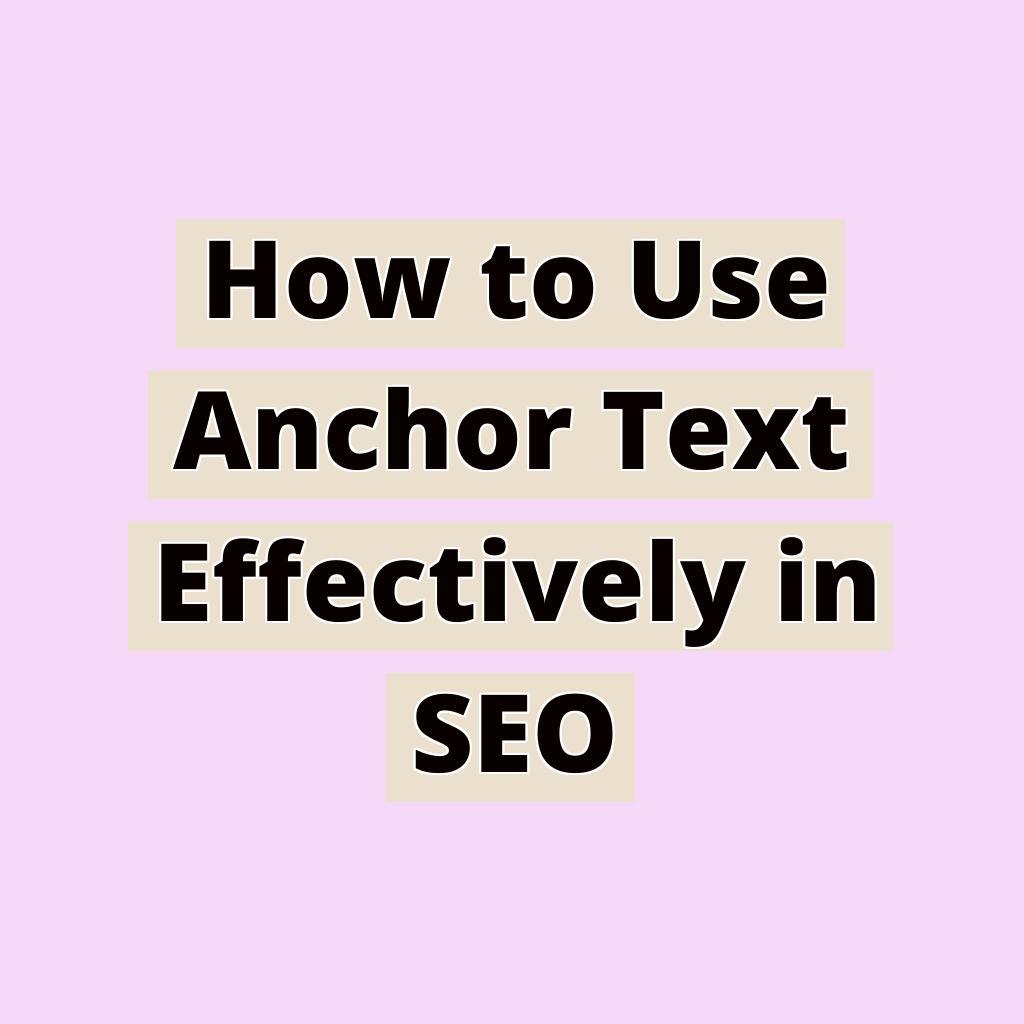Are you looking to enhance your website’s SEO and drive more organic traffic? One key strategy you should focus on is optimizing your anchor text. Anchor text plays a crucial role in helping search engines understand the context and relevance of your content. In this blog post, I will guide you on how to use anchor text effectively to improve your website’s SEO performance.
What is Anchor Text?
Anchor text is the clickable text in a hyperlink. When you create a hyperlink on your website, the anchor text is the visible and clickable part that users interact with. It provides both search engines and users with context about the linked page’s content. Effective use of anchor text can help search engines understand the topic of the linked page, which can positively impact your SEO efforts.
Types of Anchor Text
There are several types of anchor text that you can utilize to optimize your SEO strategy:
-
Exact Match Anchor Text: This type of anchor text matches the target keyword precisely. For example, if your target keyword is “best running shoes,” the anchor text would be “best running shoes.”
-
Partial Match Anchor Text: Partial match anchor text includes variations of the target keyword or related keywords. For instance, using “top running footwear” as anchor text for the keyword “best running shoes.”
-
Branded Anchor Text: Branded anchor text uses your brand name as the clickable text. It helps build brand authority and trust. For example, using “Nike” as anchor text for a link to your Nike shoes product page.
-
Naked URL Anchor Text: This type of anchor text uses the full URL as the clickable text. For instance, using “https://www.example.com/best-running-shoes” as anchor text.
-
Generic Anchor Text: Generic anchor text is a non-descriptive phrase like “click here” or “learn more.” While not as beneficial for SEO, it can be useful in certain contexts.
Best Practices for Using Anchor Text
To leverage anchor text effectively for SEO, consider the following best practices:
-
Relevance: Ensure that the anchor text is relevant to the linked page’s content. This helps search engines understand the relationship between the anchor text and the linked page.
-
Variety: Use a mix of different types of anchor text to create a natural link profile. Avoid over-optimizing with exact match anchor text to prevent penalties from search engines.
-
Placement: Place anchor text within the body of the content where it flows naturally. Avoid stuffing anchor text or placing it in irrelevant locations.
-
Link Quality: Link from reputable and authoritative websites to improve the credibility of your anchor text and linked pages.
-
Optimize Anchor Text for Accessibility: Ensure that your anchor text provides context even when read out of context. This is crucial for users who rely on screen readers.
-
Monitor and Update: Regularly monitor the performance of your anchor text and update it as needed based on changes in your SEO strategy.
Common Mistakes to Avoid
While optimizing anchor text can benefit your SEO efforts, certain mistakes can have a negative impact:
-
Over-Optimization: Using the same exact match anchor text excessively can signal to search engines that you are trying to manipulate rankings.
-
Irrelevant Anchor Text: Linking irrelevant anchor text to a page can confuse search engines and users, leading to a poor user experience.
-
Broken Links: Make sure that your anchor text links to valid and working URLs. Broken links can harm your SEO performance.
-
Ignoring User Experience: Prioritize user experience when creating anchor text. Ensure that it provides clear context and adds value to the content.
The Bottom Line
Effectively utilizing anchor text is a valuable SEO strategy that can boost your website’s visibility and traffic. By understanding the types of anchor text, following best practices, and avoiding common mistakes, you can optimize your anchor text to improve your overall SEO performance. Start implementing these tips today to enhance your website’s search engine rankings and attract more visitors.
